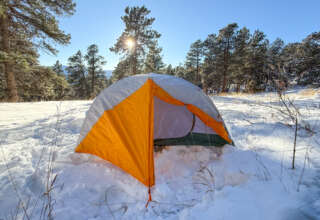
Understanding the Anatomy of Calves
Before we dive into the causes and solutions, let’s briefly understand the anatomy of calf muscles. The calves are composed of two primary muscles: the gastrocnemius and the soleus. These muscles play a crucial role in ankle movement and stabilization.
Common Causes of Painful Calves
Dehydration and Electrolyte Imbalance
Dehydration can lead to muscle cramps and pain in the calves. When you hike, your body loses fluids through sweat, and an electrolyte imbalance can develop. This imbalance affects muscle function and can result in discomfort.
Overexertion and Muscle Fatigue
Pushing yourself too hard during a hike can lead to overexertion and muscle fatigue. When muscles are pushed beyond their limit, they become more prone to soreness and pain.
Improper Footwear
Wearing inadequate footwear can strain your calf muscles. Shoes that lack proper arch support or don’t fit well can cause your calves to work harder than necessary, leading to pain.
Inadequate Warm-up
Skipping a proper warm-up before a hike can contribute to calf pain. A warm-up prepares your muscles for the activity ahead and reduces the risk of injury.
Preventing Painful Calves
Hydration is Key
Staying hydrated before, during, and after a hike is crucial. Proper hydration maintains electrolyte balance and helps prevent muscle cramps.
Gradual Increase in Intensity
Avoid sudden increases in hike intensity. Gradually build up your endurance and allow your calf muscles to adapt to the workload.
Selecting the Right Footwear
Invest in high-quality hiking shoes that provide proper support and cushioning. Well-fitting shoes reduce the strain on your calves and enhance your overall hiking experience.
Proper Warm-up and Stretching
Dedicate time to warm-up exercises and calf stretches before hitting the trail. This prepares your muscles for the hike and reduces the risk of strains.
Managing Pain and Discomfort
Rest and Recovery
If your calves are aching, give them time to recover. Rest allows your muscles to heal and prevents further strain.
Utilizing Ice and Heat Therapy
Alternating between ice packs and heat therapy can help alleviate soreness. Ice reduces inflammation, while heat relaxes tense muscles.
Gentle Massage and Foam Rolling
Massaging your calves gently can improve blood circulation and reduce tension. Foam rolling is also effective in releasing tight muscles.
Long-Term Solutions
Regular Exercise and Strength Training
Engaging in regular calf-strengthening exercises can prevent future pain. Exercises like calf raises and lunges enhance muscle endurance.
Balanced Diet with Nutrient Supplements
A balanced diet rich in nutrients like potassium, magnesium, and calcium supports muscle function. Supplements can be considered if your diet lacks these essential elements.
When to Seek Medical Attention
In most cases, calf pain after hiking is temporary and can be managed with the mentioned strategies. However, if the pain persists or worsens, it’s wise to consult a healthcare professional.
Conclusion
Hiking is a wonderful way to connect with nature and stay active, but calf pain can put a damper on the experience. By staying hydrated, choosing the right footwear, warming up properly, and following the strategies outlined in this article, you can minimize the discomfort of painful calves and fully enjoy your hiking adventures.
FAQs
- Why do my calves hurt after hiking? Calves can hurt due to factors like muscle fatigue, dehydration, and improper footwear. This article provides insights into the causes and solutions.
- Can stretching help prevent calf pain? Yes, incorporating calf stretches in your warm-up routine can help prevent calf pain by preparing the muscles for activity.
- How can I speed up calf muscle recovery? Adequate rest, hydration, gentle massage, and using ice and heat therapy can accelerate calf muscle recovery.
- Are calf-strengthening exercises beneficial for hikers? Absolutely. Engaging in calf-strengthening exercises enhances muscle endurance and reduces the risk of pain during and after hikes.
- When should I be concerned about calf pain? If calf pain is severe, persistent, or accompanied by other unusual symptoms, it’s recommended to seek medical attention promptly.
















